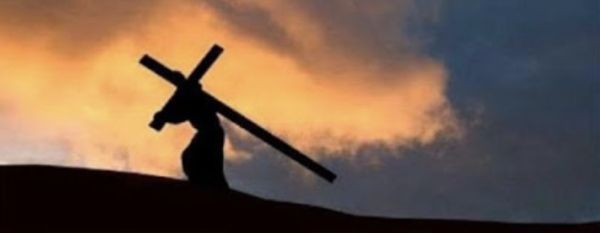(Mk 6:17-29)
The question "Jesus, Who is He?" grows throughout the Gospel of Mark, up to the centurion's answer under the Cross (Mk 15:39).
The balance of people's opinions (Mt 14:1-2; Mk 6:14-16; Lk 9:7-9) suggests that even around the first assemblies of believers there was an attempt to understand Christ from what was already known [from the criteria of Scripture and tradition, from ancient - even superstitious - beliefs and suggestions].
But the man of God is not simply a purifier of the Temple, nor a patchworker of conformist religiosity. He overturns popular, emotional or standard hopes.
In this way, each Prophet disquiets all those who hold the exclusive.
When he senses danger, those cloaked in lustre and power become brazen and willing to any violence, even for a false point of honour.
Tyrants always make a mockery of the isolated, inconvenient and defenceless, but leaders and potentates are also cowards: they do not intend to lose face in front of the allies of their inordinate and unchecked environment, cloaked in exemptions.
During more than 40 years of his reign, Herod Antipas had created a class of officials and a system of privileged people who had the government, the treasury, the economy, justice, every aspect of civil and police life in their hands, and his command covered the territory capillarly.
In every village, the ruler could count on the support of all the cliques and various local leaders, interested in controlling the consciences - along with compromised scribes and Pharisees, linked to his politics.
Apart from being a puppet of Rome - to which he guaranteed control of the territory and the flow of taxes - Herod was depraved and superstitious: he thought that even a light oath to a dancer should be kept.
Josephus Flavius, on the other hand, reports that John was in prison due to the ruler's fear of a popular uprising - and was considering that it was good for him to act in advance. The assassination plot was probably casual.
The courageous person who denounces abuse is crushed, but the voice of his martyrdom will never be silenced again.
This is why the episode does not induce Jesus to greater caution. Once a prophet is killed, another greater and more incisive one takes his place: the last of the Prophets, the Son of God.
Delinquents should not delude themselves that Providence does not know how to equip even the higher (and more wimpy) echelons with the counterpart of consistent and good people.
Both John and the Lord never visited the new Herodian capital, Tiberias, the city of courtly palaces, built - after Sefforis, where Jesus also worked - in diplomatic homage to the Roman emperor.
Generic and confusing religiosity can adapt to any season and be adopted even by those who think that other people's lives are worth nothing, but a Prophet does not stop at the whim of the corrupt system.
In the Palestinian villages, people's lives were harassed with taxes and abuses by landowners [who did not even reside there]; controlled by the perfect marriage of interests between civil and religious powers - who cunningly attempted to impose their way of life and impart established (useless) knowledge to the crowds.
The leaders of the popular, orthodox and compliant faith - as is often the case - were on the leash of the authorities on the ground, who considered themselves definitive and found strength in the coalition.
It seemed absurd that anyone in that society would dare to break the wall of silence that ensured that troublemakers, 'spiritual' authorities and even low-level bullies could consider themselves untouchable.
Faced with the [unceremonious] blackmail of the privileged who were in control of every social and cultural stratum, it seemed impossible to start a new path, or to say and do anything unaligned.
John and Jesus challenge the status quo and attract the vengeance of those who seek to perpetuate the prerogatives of the ancient hierarchical cosmos, and the anger of those who are exposed in their hypocrisies.
This is the real difficulty that the proclamation of the new kingdom encounters in the world. Its scornful rejection and every assassination attempt will be a litmus test of the critical prophecy, whose revelation will run parallel to the Two.
The Baptiser was an intrepid denouncer of vice, superficiality, malpractice, and the perversions of the powerful.
Pope Francis would have spoken of good manners (in the pursuit of ropey alliances) and bad habits - in the irresponsible and insulting private life, and in the violence with which dominion over the little ones is perpetuated.
Jesus, too, put his foot down, instead of making an internal career. In spite of John's foreboding, he rejected the path of weighed-up guile, pretense, diplomacy and pirouettes of circumstance.The Master stood in defence of conscience and divine law itself, against opportunistic religious and political authorities, whom he challenged head-on.
The Lord asks for the courage not to bend in the face of corruption, evil, the current mentality; to be different in the way of thinking, speaking (mellifluous), choosing and acting.
Unheard, laughed at, opposed by lords, luminaries and courtiers, the children of God bear witness to the Truth, paying their own way: perfect Gladness.
Authentic Fullness.
To internalise and live the message:
Do you know victims of authoritarianism, corruption, domination of the powerful, excess and extravagance of power? Even in the Church?
How is it that this still happens (and everything is silenced sooner or later)?
Who is Jesus according to you and others? And what would you say?












